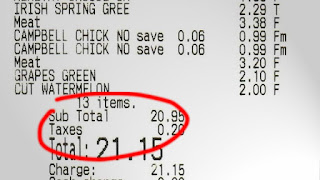Sales taxes can be a confusing thing. Everyone knows that
they have to pay them, though few people are actually clear on the rules and
laws surrounding them.
In fact, many people believe a lot of things about sales taxes
that just aren’t true. Read through our list to make sure that you’re not
falling for any of the commonly believed myths surrounding sales taxes.
The Car Buying Myth
A lot of people have bought into (literally) the myth that,
if they buy a car in a sales-tax free state and then take it back to their own
state where taxes prevail, they can skip out on the sales tax.
While it would be nice if this myth was true, it’s not. There’s still a “use tax” involved, which is taxed at the same rate as the sales tax in the state in which you eventually register your vehicle.
So, if you’re thinking about taking a long trip to a
tax-free state just to buy a car, skip it. You’ll end up paying either way.
The Nonprofit Myth
Many people wrongfully believe that nonprofit organizations
are exempt from relevant sales taxes, but just like the car belief, this one is
a myth too.
The confusion comes into play because nonprofits are often
exempt from federal income taxes, but sales taxes are a whole other animal.
Nonprofits have to pay sales taxes on purchases they make,
and they also have to charge sales taxes on items that they sell.
These are actually just two of many common myths about sales
taxes. So, before you believe anything you’ve heard about sales taxes, especially
if it relates to not having to pay them, check with a financial professional to
find out the truth.




